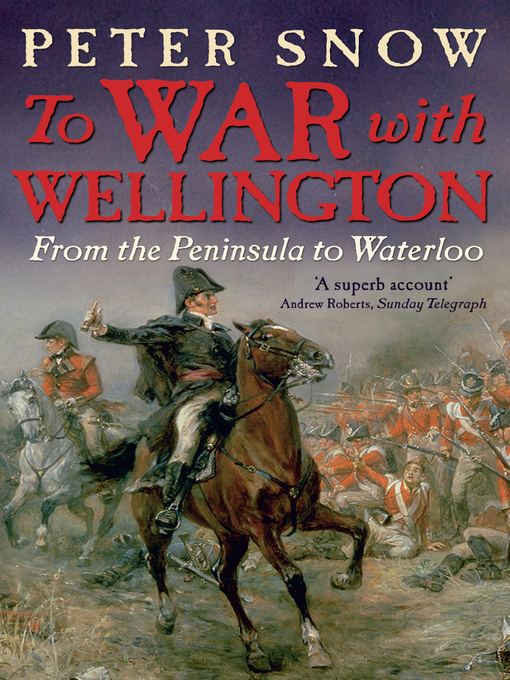This week I've returned to the Napoleonic wars and the campaigns of Wellington, although without my friend Richard Sharpe. In this case I've decided to read a historical text by Peter Snow that follows Wellington's development as a commander from the start of the Peninsular campaign to Waterloo, as well as talking about army life. When I picked up this book I was less interested in Wellington than I was in information about life in his army. For whatever reason my historical tastes tend to run less towards biographies and more towards the larger picture. Plus, additional information on day-to-day life is always helpful for historical interpretation at museums and historic sites. Overall this book is an okay introduction, but just that, an introduction.
This book is very much a condensed biography of Arthur Wellesley, the first Duke of Wellington, beginning with his military training and eventual appointment to India with the assistance of his older brother as his patron. The book begins properly with Wellington landing in Portugal in 1807 to assist the Portuguese and Spanish resistance against French rule, as well as bleed men and resources from Napoleon's campaigns in Central Europe. The book is very unstinting in its praise of Wellington, being very quick to dismiss Wellington's personal flaws such as his arrogance, aloofness, and disdain for the lower classes. Snow emphasizes that in several key battles Wellington refused to tell his plans to any subordinates ahead of time, leaving no structure in place should he be wounded or killed. It is perhaps the fact that Wellington lived a charmed life and avoided injury when so many of his staff officers and aides were killed or wounded that saved Wellington's army from a disastrous defeat due to a loss of leadership. Even Wellington's notorious and unabashed womanizing is winked at, and while this has nothing to do with his qualities as a general it certainly doesn't put him, in my eyes, in a flattering light.
To his credit, Snow relies extensively on primary sources for his works, drawing upon the diaries, letters, and dispatches of people involved in Wellington's campaigns. As Snow himself admits, some are written decades after the fact when memories are more fuzzy, but many are first-hand accounts written as their authors trudged through Flanders, Portugal, and Spain. It's always nice to see primary sources utilized to such a degree, and Snow even calls Wellington out in the few instances where he tries to pin his failures on others. What I found most interesting was the accounts of army life during the time period, talking about the daily drudgery and discipline which so often breaks down in an orgy of violence and plunder upon the successful completion of a siege. Wellington's apparent indifference to his troops depravities is rather striking considering his reputation of enforcing respect of private property, if nothing else than to prevent the civilian population from hating the English as well!
In that same vein, a lot of emphasis is laid upon Wellington's attention to supply, being determined to keep his army well-fed and well-supplied so that they would not be required to requisition or outright steal food and other items from the civilian population. However there are quite a few accounts of severe starvation suffered by Wellington's troops, including accounts of hunting acorns so they could be ground into an edible paste. A well-supplied army should not need to resort to such measures, which begs the question what has driven them to such a need? Snow briefly mentions Wellington may not have been aware that such things were happening, but if it was as wide-spread as the accounts claim it to be it seems his army faced severe food shortages during some winters. I'm sure there is a good rational explanation for this discrepancy, perhaps several good reasons, but there just seems to be a lack of research there in particular within this work.
The impression I'm left with is this book is rather light reading, especially compared to other historical works. Considering entire books have been written about Waterloo, (I even read one!) Snow's book comes across as a highlight of important events over eight years rather than an in-depth discussion. For people unfamiliar with the Napoleonic Wars it's a good introduction, but it definitely lacks a lot of substance that I've gotten used to in my historical readings. (Sorry! Trained historian!) If you want to learn about the Peninsula Wars this is a good start, but you shouldn't end here.
- Kalpar


No comments:
Post a Comment